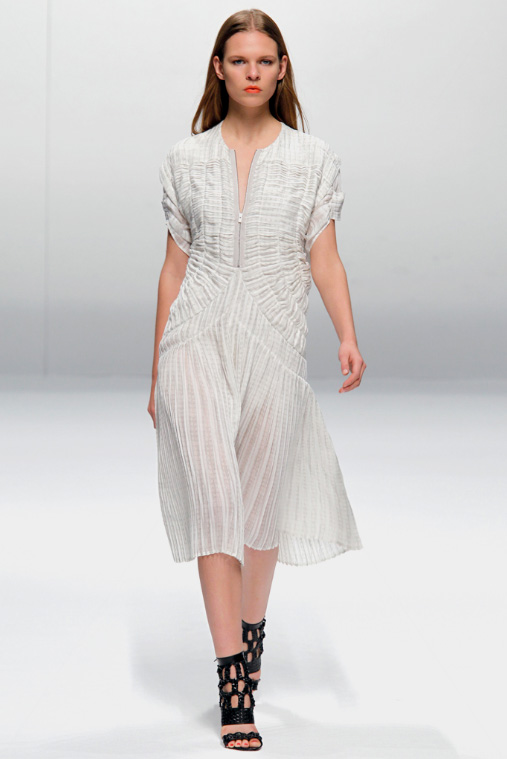






























Last Fall seemed like the season when the wave of grown-up, polished dressing hit a particularly high crest. But ideas like that, which appeal to retailers' bottom lines and editors' personal budgets, while also having a genuine impact on the way women shop and dress, don't simply ripple away.
www.sharonwauchob.comParisFashion WeekFashion Brand
Last Fall seemed like the season when the wave of grown-up, polished dressing hit a particularly high crest. But ideas like that, which appeal to retailers' bottom lines and editors' personal budgets, while also having a genuine impact on the way women shop and dress, don't simply ripple away.
PARIS, September 30, 2010
By Meenal Mistry
Last Fall seemed like the season when the wave of grown-up, polished dressing hit a particularly high crest. But ideas like that, which appeal to retailers' bottom lines and editors' personal budgets, while also having a genuine impact on the way women shop and dress, don't simply ripple away. That's where Sharon Wauchob started for Spring. "You want to address all that, but keep it fresh," she said after the show. "How do I take things that are seemingly sort of elegant, but still be me?"
Her answer was beautiful and luxurious, splicing the ladylike accoutrements of pearls, pleats, and lace with her signature hard-edged minimalism. Wauchob stuck to a palette of black and white, interrupted only by a bronzy ocher. That allowed you to fully appreciate the textures of various jacquards and laces on breezily deconstructed dresses, which were cut away to expose slices of back and shoulder. But for all the effort that went into it, all that texture and intricate work took a humble step back to let the power of the great piece—whether a drop-waist frock, fantastic fluid trousers, or a beautiful sheer blouse—really stand out.
Of course, there are some displays of technique that can't be ignored. That honor goes to the black pleated silk dresses that at first glance seemed to have a striated white pattern, which turned out to be tiny pearls sewn in between the lines. "They have to pleat it first and then embroider the pearls," Wauchob explained. "But it's all ready for production." After all, in the world of grown-up clothes, even a showpiece has to come to work.